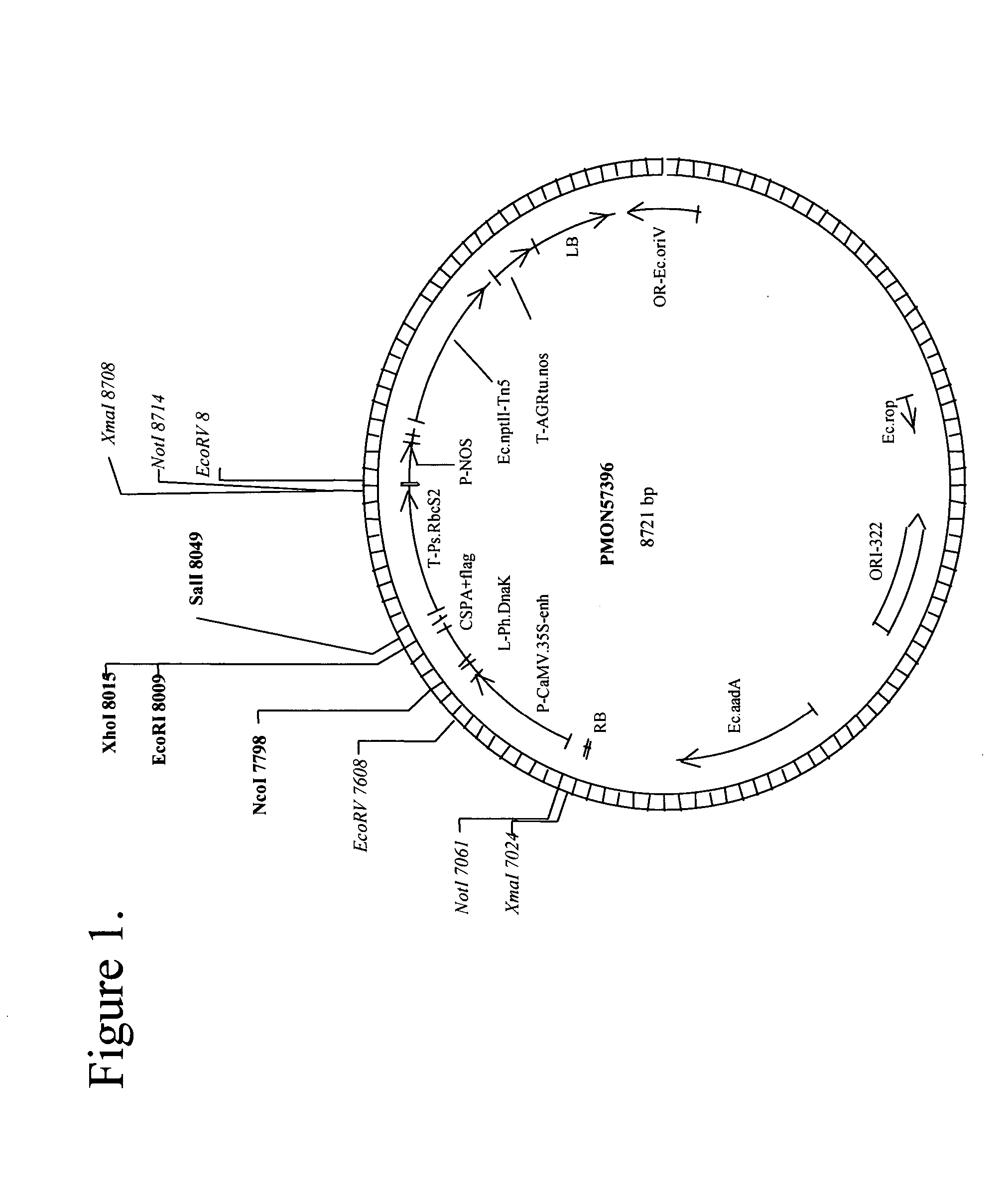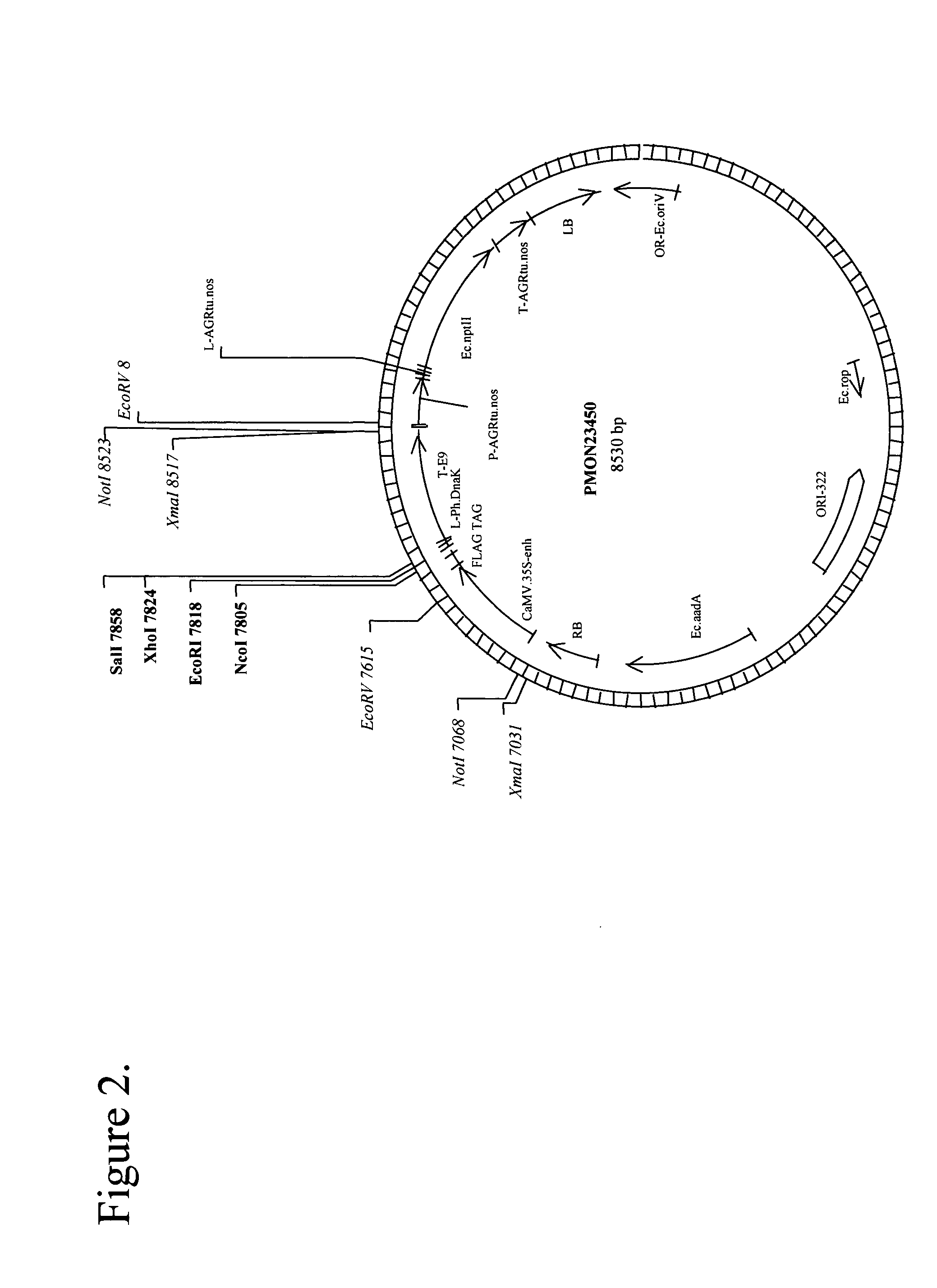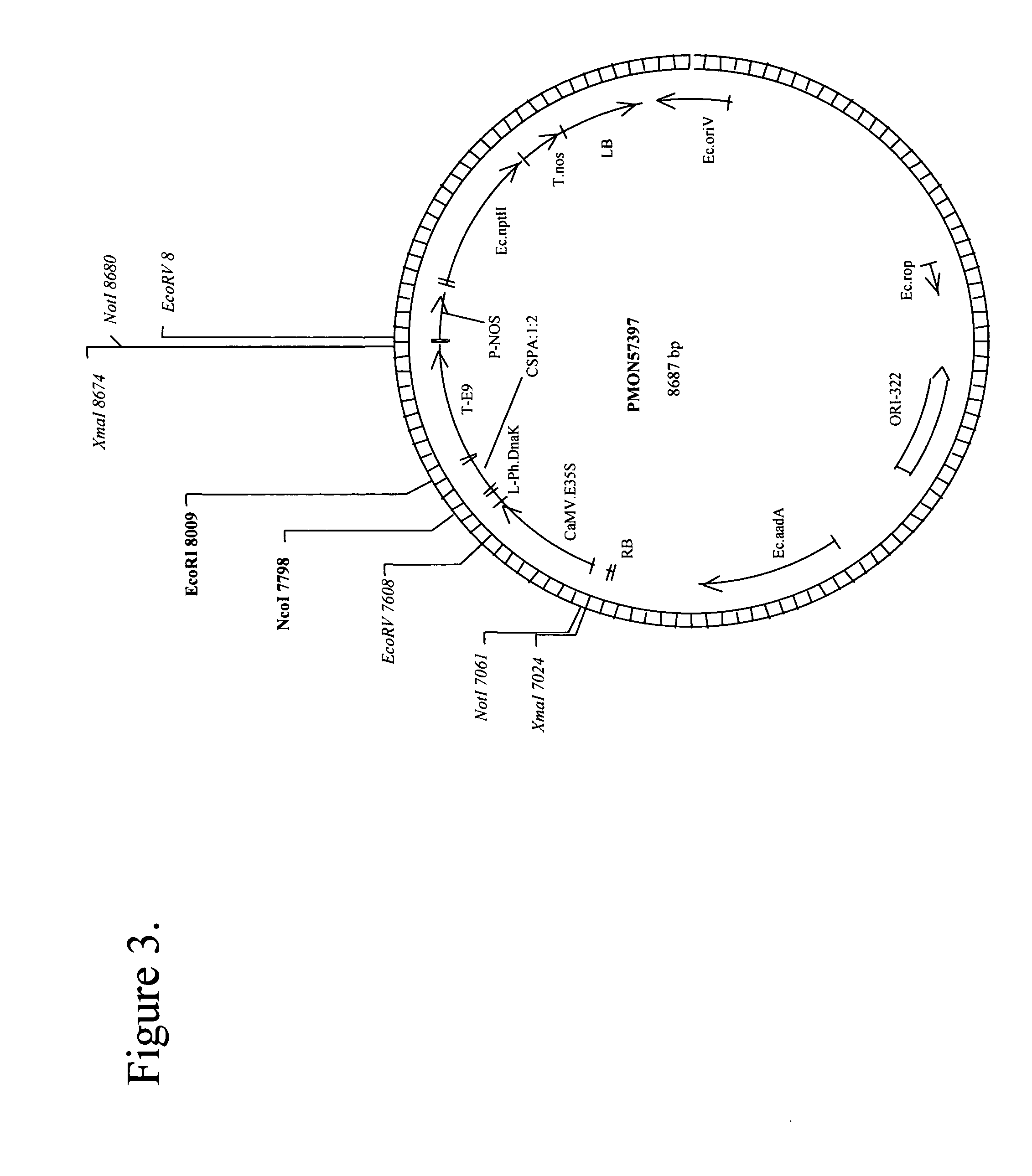Methods for enhancing stress tolerance in plants and compositions thereof
a technology of stress tolerance and composition, applied in the directions of peptides, plant/algae/fungi/lichens ingredients, tissue culture, etc., can solve the problems of large crop loss, limited traditional breeding inherently, and limited seed and fruit production, so as to improve the effect of treat tolerance, increase yield and increase root mass
- Summary
- Abstract
- Description
- Claims
- Application Information
AI Technical Summary
Benefits of technology
Problems solved by technology
Method used
Image
Examples
example 1
[0111] pMON57396 (FIG. 1) is a binary vector for Agrobacterium-mediated transformation and constitutive expression of a protein (SEQ ID NO: 56) similar to Escherichia coli CspA in Arabidopsis. To clone the E. coli CspA gene, two gene specific primers, MF1 and MF2, were designed based on the CspA sequence information (Genbank M30139, GI:409136) from the National Center for Biotechnology Information, which is part of the National Library of Medicine, in turn part of the National Institutes of Health (NCBI). The sequence for MF1 is AGGTAATACACCATGGCCGGTAA (SEQ ID NO: 66), which anneals at the translational start site of CspA and introduces an NcoI site at the 5′ end, while the sequence of MF2 is TTAAGCAGAGAATTCAGGCTGGTT (SEQ ID NO: 67), which anneals at the last codon of CspA and introduces an EcoRI site at the end of the primer. PCR was performed to isolate E. coli CspA. Specifically, E. coli DH5α cells were lysed and a small amount of the lysate was used as a template to amplify the ...
example 2
[0113] pMON57397 (FIG. 2) is a binary vector for Agrobacterium-mediated transformation and constitutive expression of a protein (SEQ ID NO: 57), like Escherichia coli CspA protein, in Arabidopsis. To create pMON57397, the binary vector pMON57396 containing the Escherichia coli CspA gene (see example above) tagged at the C-terminus by the Flag epitope tag, was digested with restriction enzymes XhoI and SalI to cleave these sites in the vector and release the FLAG epitope tag (The FLAG tag encodes the oligopeptide DYKDDDK, SIGMA, St Louis). The linearized plasmid was then purified and religated. Ligation was performed using T4 ligase and following procedures recommended by the manufacturer (BRL / Life Technologies, Inc., Gaithersburg, Md.). The ligation mix was transformed into E. coli cells for plasmid propagation (Sambrook et al., Molecular Cloning: A Laboratory Manual, 2nd Edition, Cold Spring Harbor Press, 1989). The transformed cells were plated on appropriate selective media (Samb...
example 3
[0115] pMON57398 (FIG. 4) is a binary vector for Agrobacterium-mediated transformation and constitutive expression of a protein (SEQ ID NO: 59) like Bacillus subtilis CspB, in Arabidopsis. To clone the B. subtilis CspB gene, two gene-specific primers, MF3 and MF4a, were designed based on the CspB sequence information (Genbank U58859, gi:1336655) from the National Center for Biotechnology Information, which is part of the National Library of Medicine, in turn part of the National Institutes of Health (NCBI). The sequence for MF3 is AGGAGGAAATTCCATGGTAGAAG (SEQ ID NO: 69), which anneals at the translational start site of CspB and introduces an NcoI site at the 5′ end, while the sequence of MF4a is TCAATTTATGAATTCGCTTCTTTAGT (SEQ ID NO: 70), which anneals at the last codon of CspB and introduces an EcoRI site at the end of the primer. PCR was performed to isolate B. subtilis CspB. Bacills subtilis cells were obtained from Carolina Biological Supply (Burlington, N.C.), the cells were ly...
PUM
| Property | Measurement | Unit |
|---|---|---|
| temperature | aaaaa | aaaaa |
| temperature | aaaaa | aaaaa |
| temperature | aaaaa | aaaaa |
Abstract
Description
Claims
Application Information
 Login to View More
Login to View More - R&D
- Intellectual Property
- Life Sciences
- Materials
- Tech Scout
- Unparalleled Data Quality
- Higher Quality Content
- 60% Fewer Hallucinations
Browse by: Latest US Patents, China's latest patents, Technical Efficacy Thesaurus, Application Domain, Technology Topic, Popular Technical Reports.
© 2025 PatSnap. All rights reserved.Legal|Privacy policy|Modern Slavery Act Transparency Statement|Sitemap|About US| Contact US: help@patsnap.com



